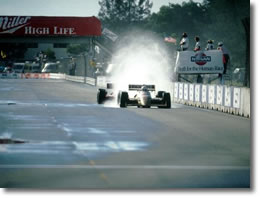
Web page speed is one of the main factors search engines use to rank your web pages. Don’t expect to gain high rankings if you have a slow loading website. The faster the better. Most people use fast internet connections so they want websites to appear within a few seconds. If not, they lose patience and surf over to your competition.
7 ways to speed up your web page
1. Create clean HTML
Clean coding practices help search engine spiders to quickly index your site. If the pages are full of HTML errors it will affect the speed at which your content is crawled. Run your web pages through an html validator to find HTML errors.
2. Fix broken links
This is bad news for both the search engines and visitors. Search engines depend on links to find other pages and websites. If a link is broken a search engine spider will not be able to continue. When a visitor runs into a broken link they usually receive the dreaded 404 error page and will immediately go elsewhere. This means you’ll lose a lot of visitors.
To prevent this from happening, create a custom 404 error page that redirects visitors to a relevant area of your site.
To check for broken links download the free software XENU.
http://home.snafu.de/tilman/xenulink.html
3. Optimize your images
Large images slow the loading of your web pages. Only use images if it enhances the content on the page. Use a GIF for images with few colors such as logos or text. Use JPG for images containing lots of colors like photos. Avoid using a high resolution for the web as it will greatly increase the size of the image. Use a resolution of 72 pixels per inch (ppi) for web images.
PNG is a format that maintains great quality for both transparent and non transparent images.
Do not use BMPs or TIFFs.
3. Avoid too much flash or video
Both these types of files consume a lot of bandwidth. Only use flash for decorative purposes. For instance you may wish to rotate different images on your home page to highlight the features of your site.
Hosting videos on the same server as your site will slow it down because videos consume large amounts of bandwidth. Try to host your videos outside your website such as YouTube or the Amazon S3 file storage service.
4. Avoid using tables
Tables require a lot more code to design a web page. This means it will take longer for your browser to load the page because there’s more code to get through. Instead use XHTML and CSS. It will speed up the rendering of your web pages and you’ll have greater flexibility in your design. For example if you want to change the color of your font site-wide you only need to edit one style sheet.
Only use tables when you need to create columns of data.
5. Place Javascript and CSS in external files
Instead of including all your javascript or css code on the web page place it in an external file (.css or .js). It not only helps speed up your web page load times but helps you to easily maintain by editing one file.
6. Host your site on a fast web server
If you have a slow web server, optimizing your web pages won’t make much difference. Most website owners use shared web hosting services. This means you’re sharing the space on the server with other websites. An overloaded server will affect the speed of your web pages.
Some hosting companies advertise unlimited space and bandwidth however if your site (or several sites) suddenly receives a ton of traffic it may cause the server to overload and the server to shut down. This means your site will be offline.
Test your web page speed with this tool
http://www.iwebtool.com/speed_test
If it’s slow optimize the pages or move your site to a faster server.
7. Compress your files
GZIP enables the Web server to compress files before sending them to the client’s browser. If you’re hosting files on your site use gZIP compression to speed up your site.
Whenever you launch a new website or want to improve the speed of your current web pages go through these 7 steps. It will help you gain higher rankings and improve your visitors experience.
Resources
How To Optimize Your Site With GZIP Compression
Page Speed Tool (to get suggestions for speeding up your website)
Online image optimizer
*********************
Download my free report…
7 habits of Highly Effective Traffic Generation

[…] Source: Web Design Discussion […]